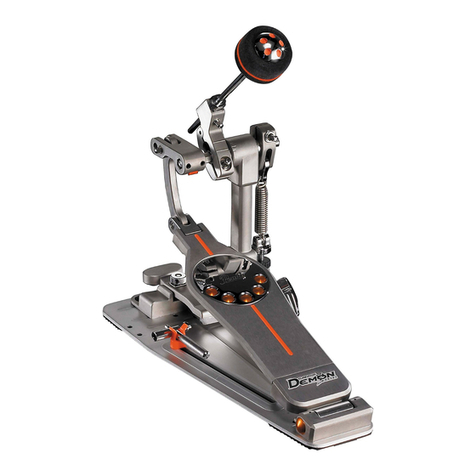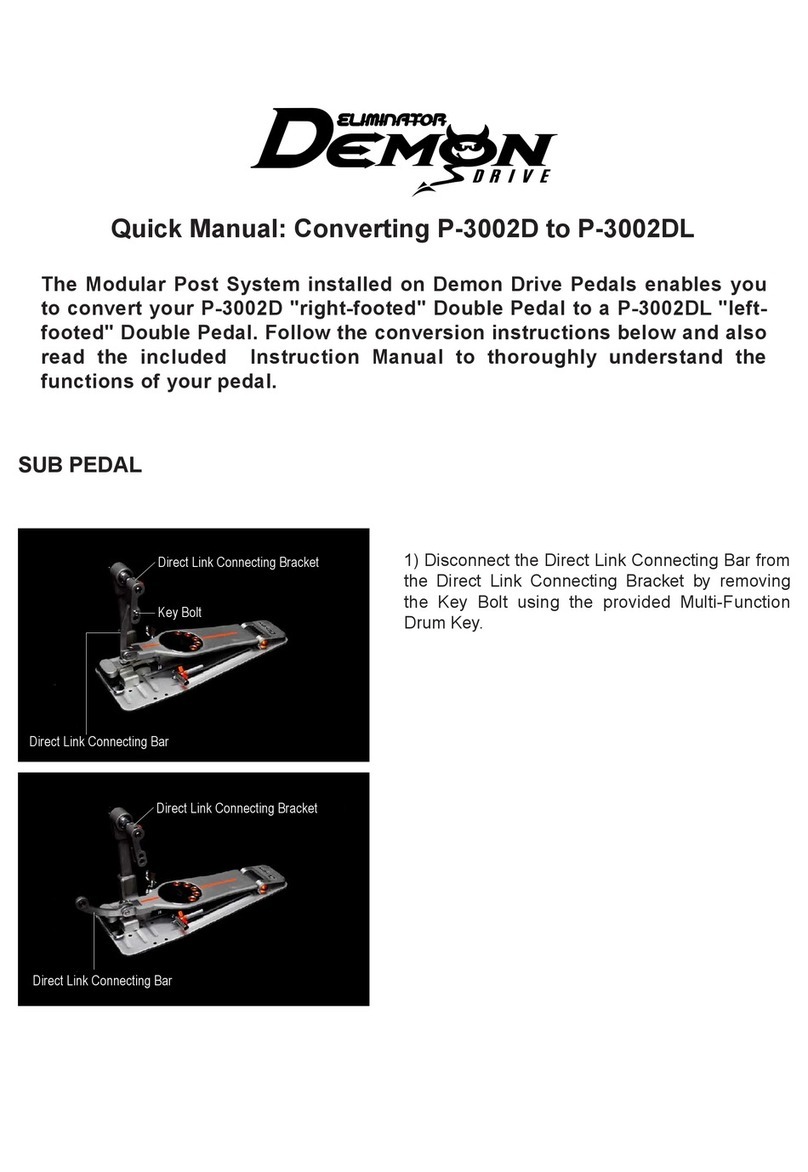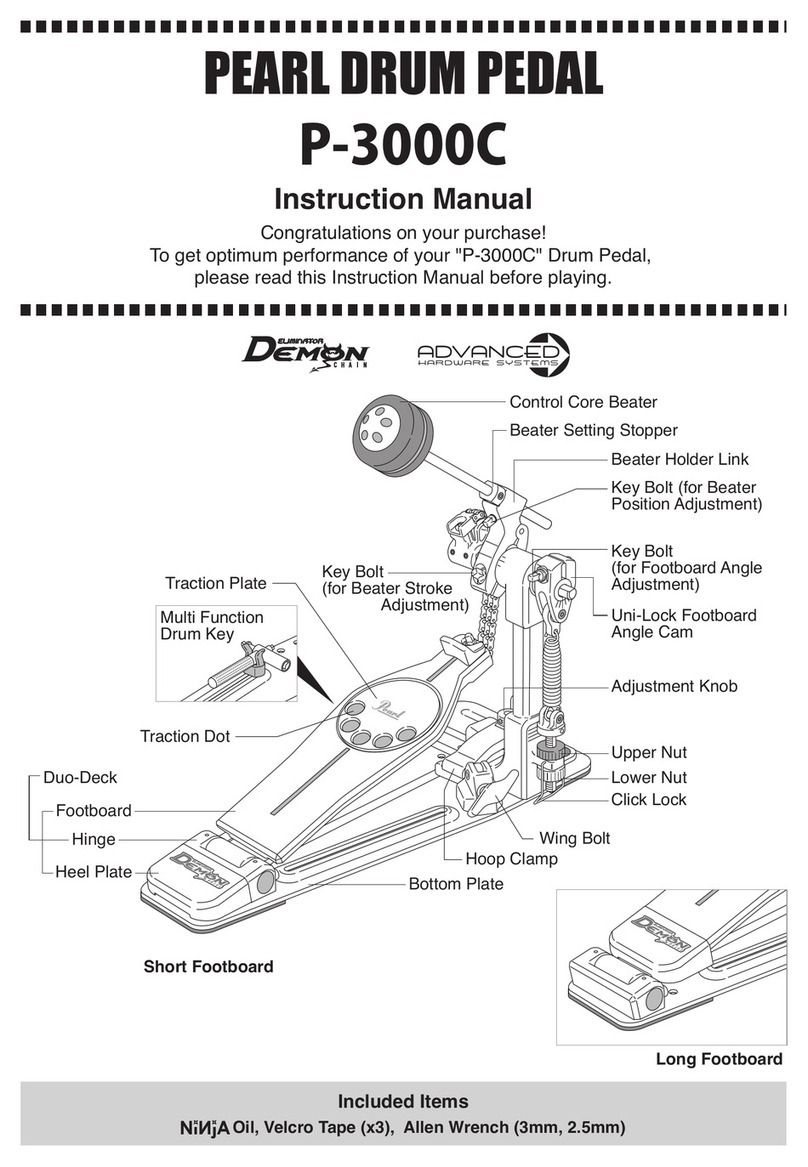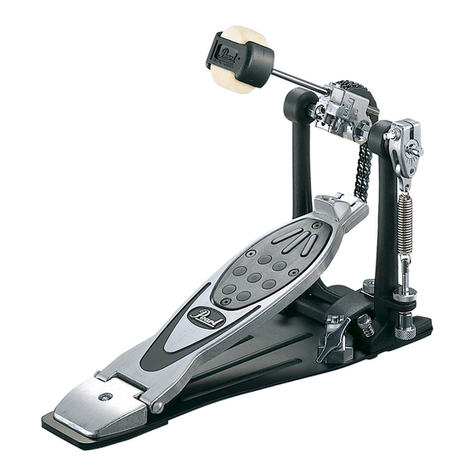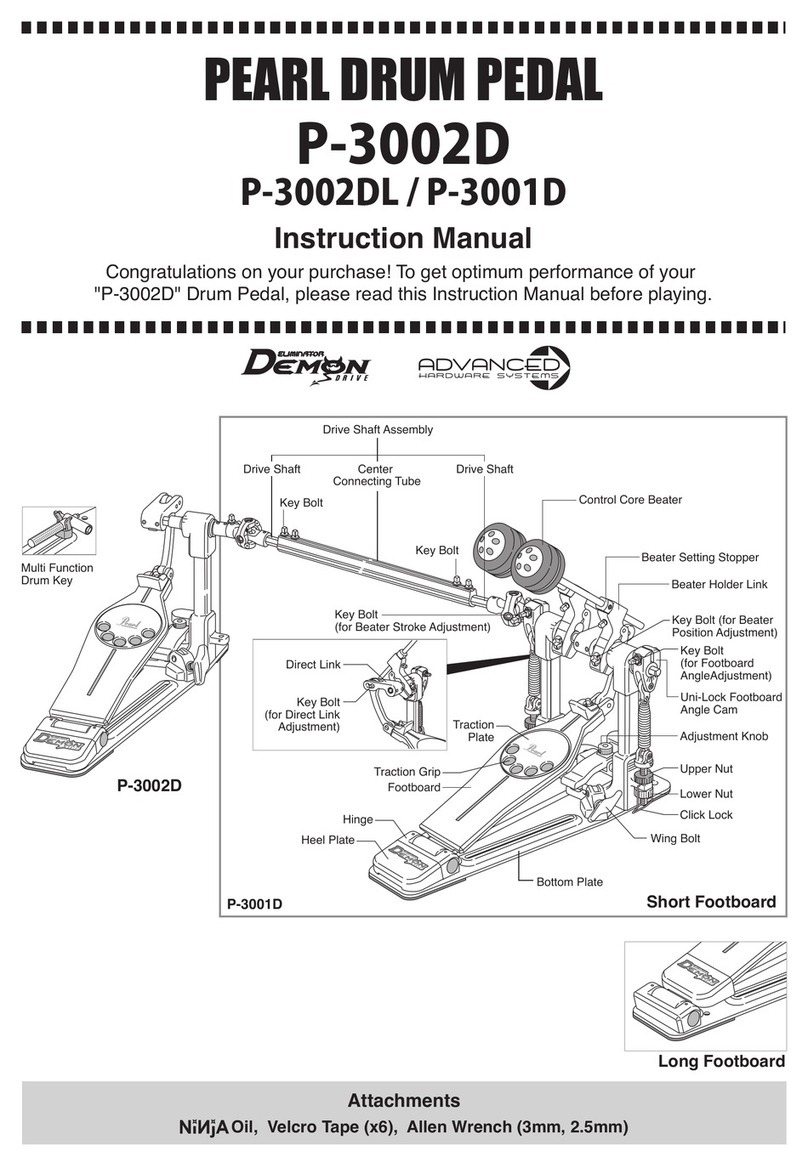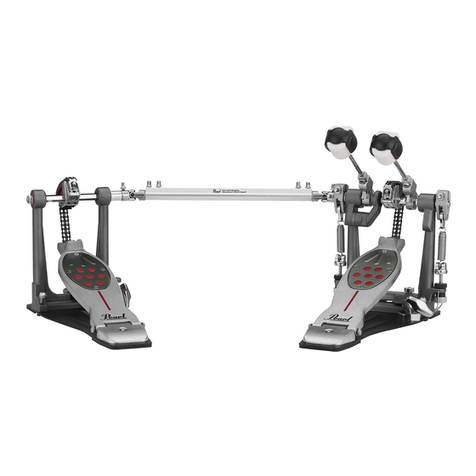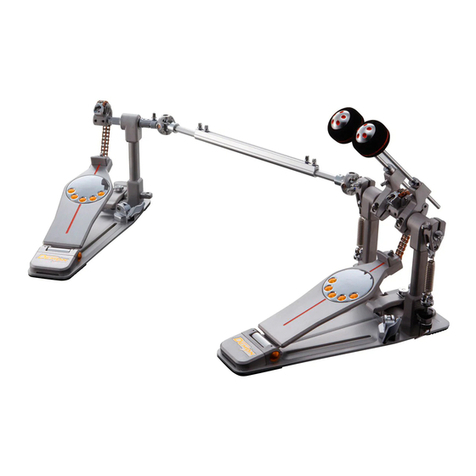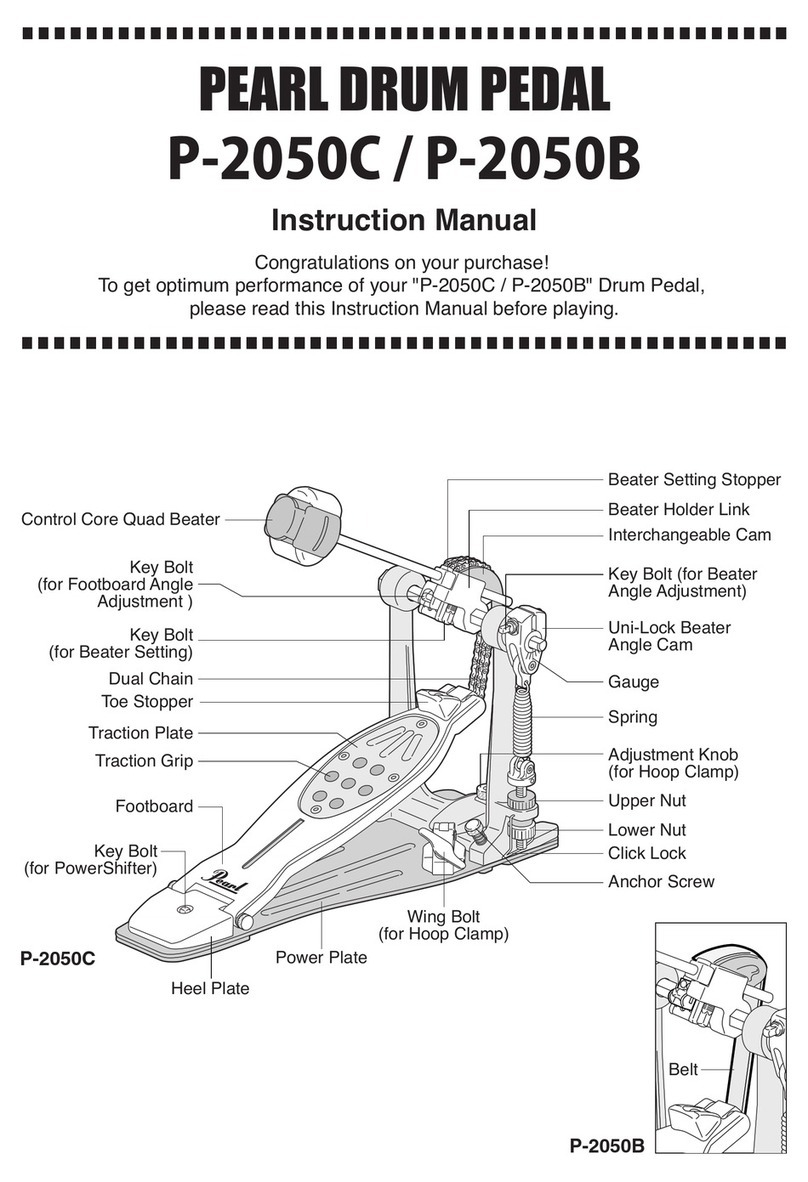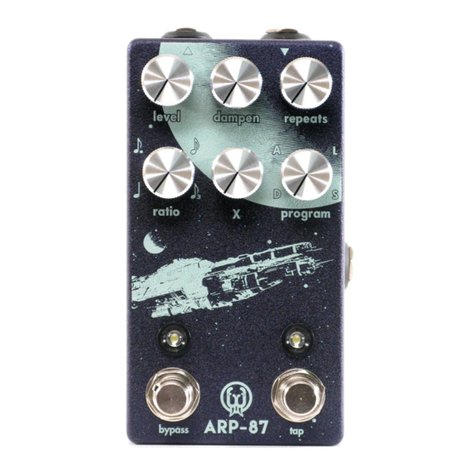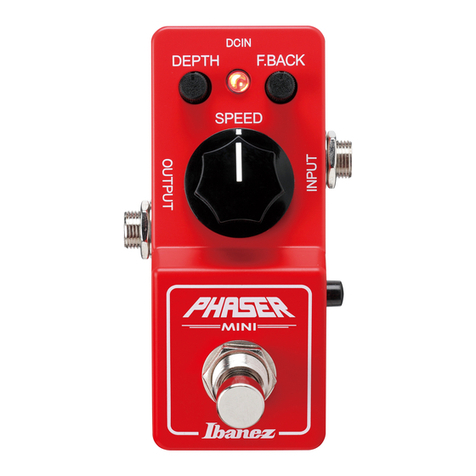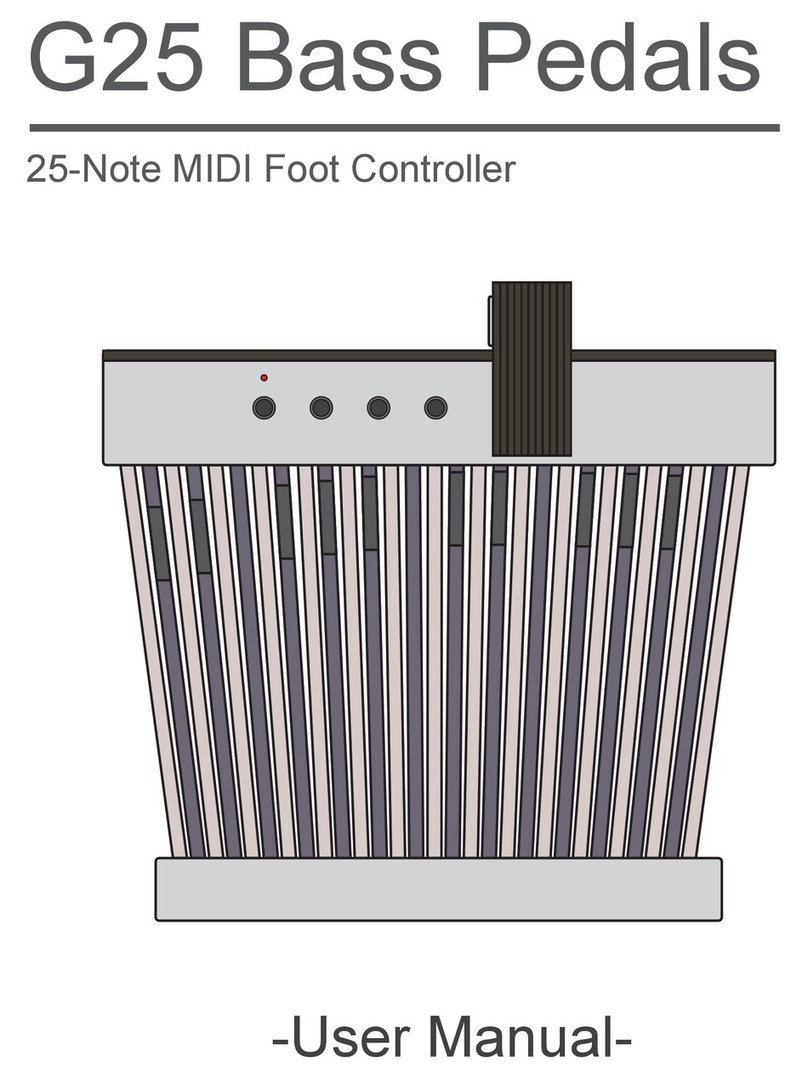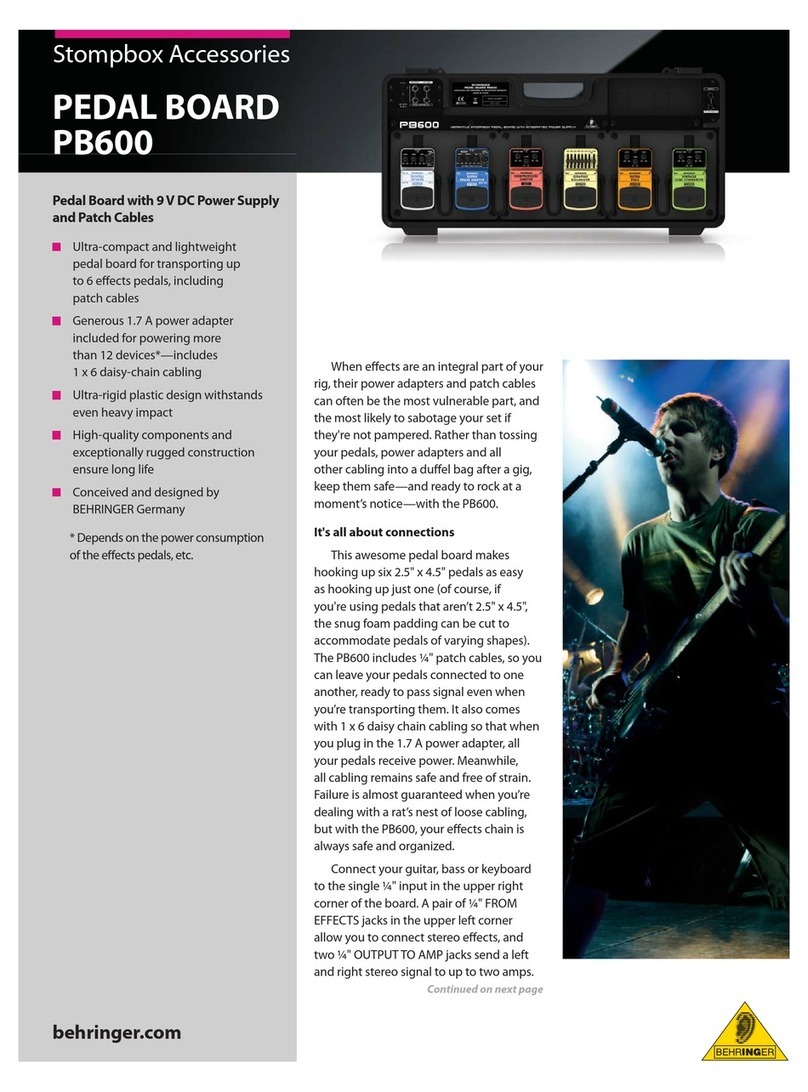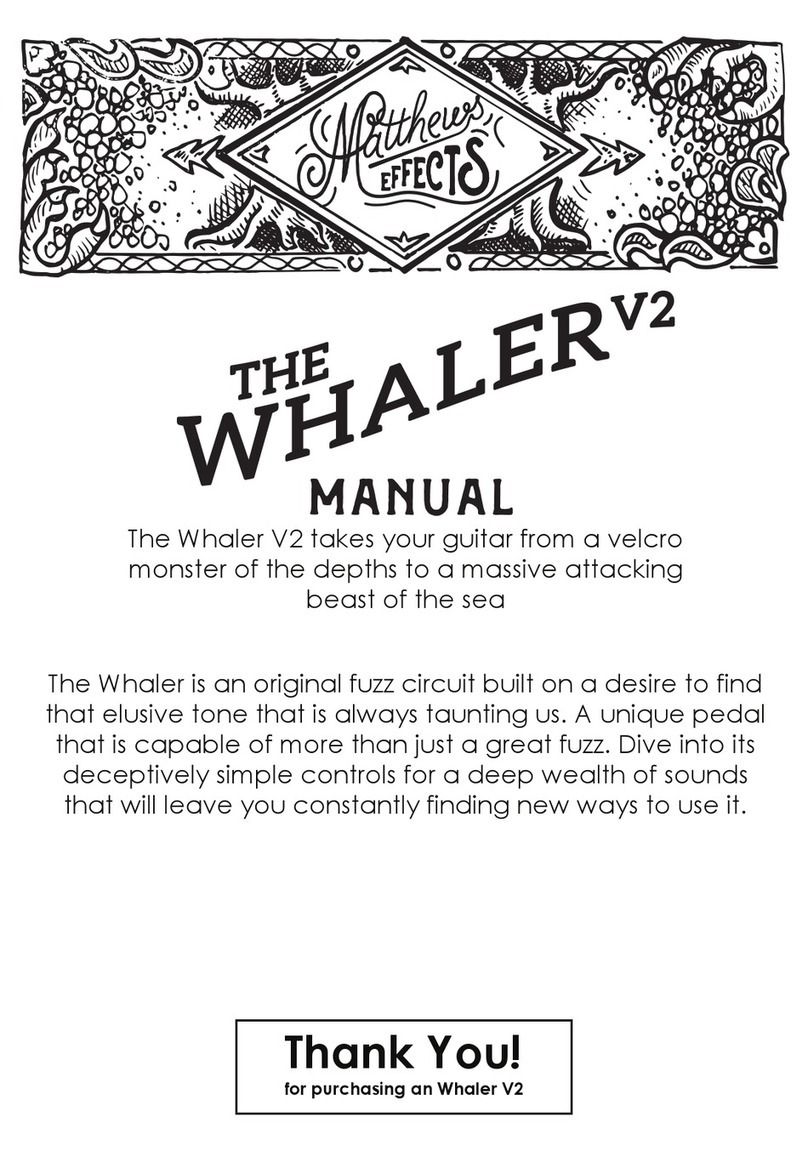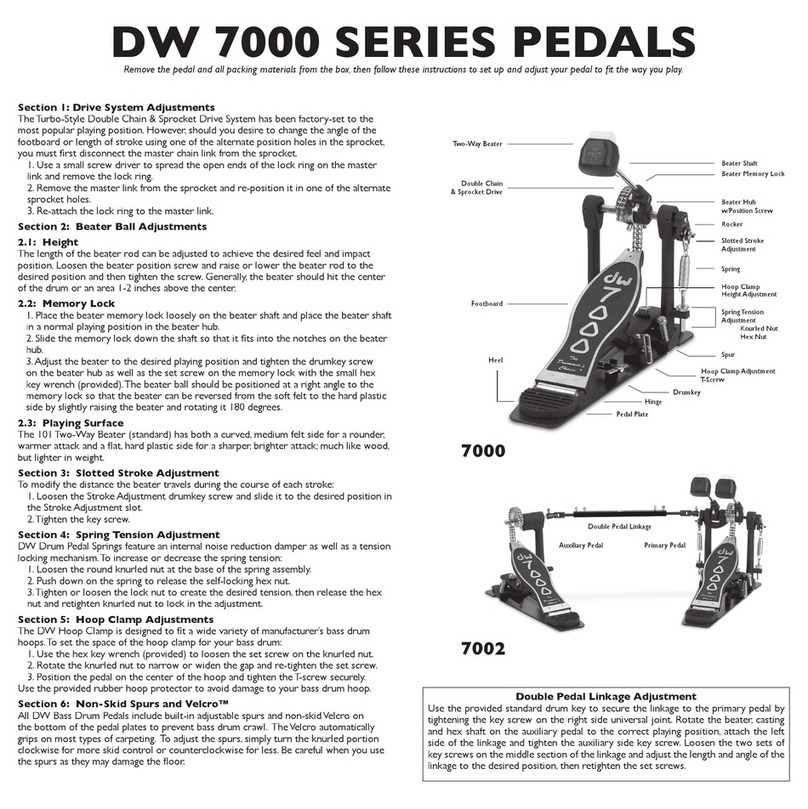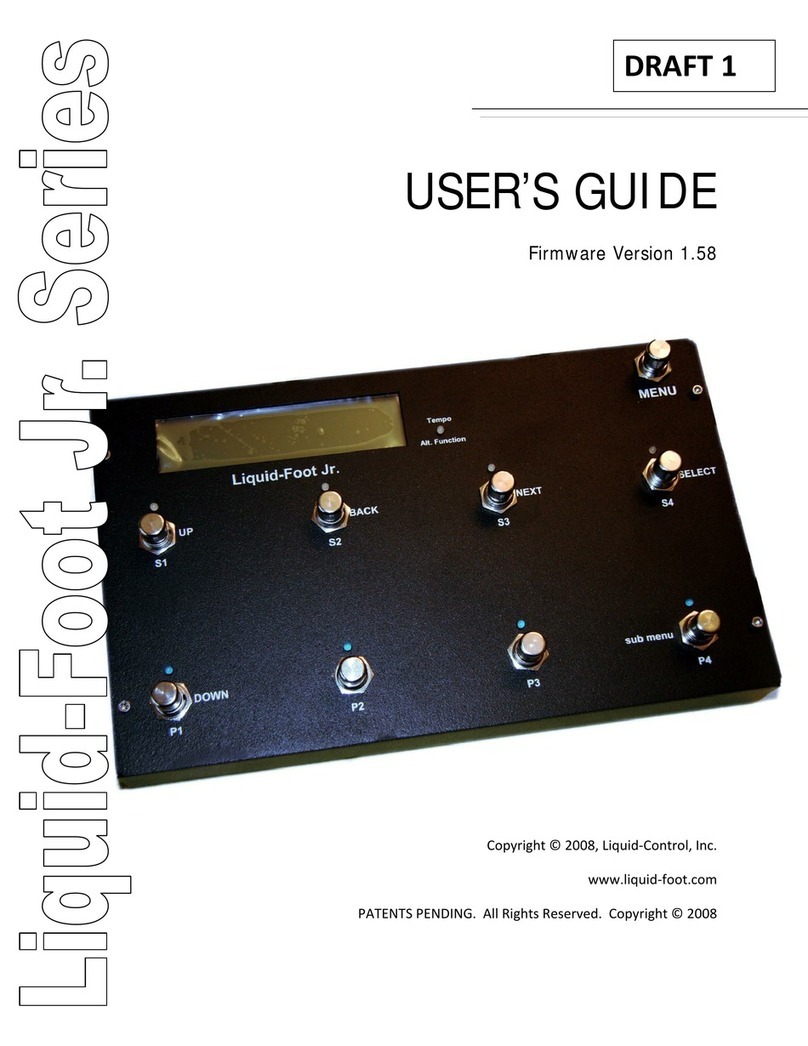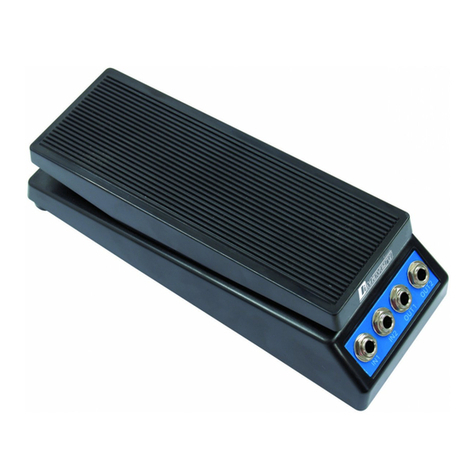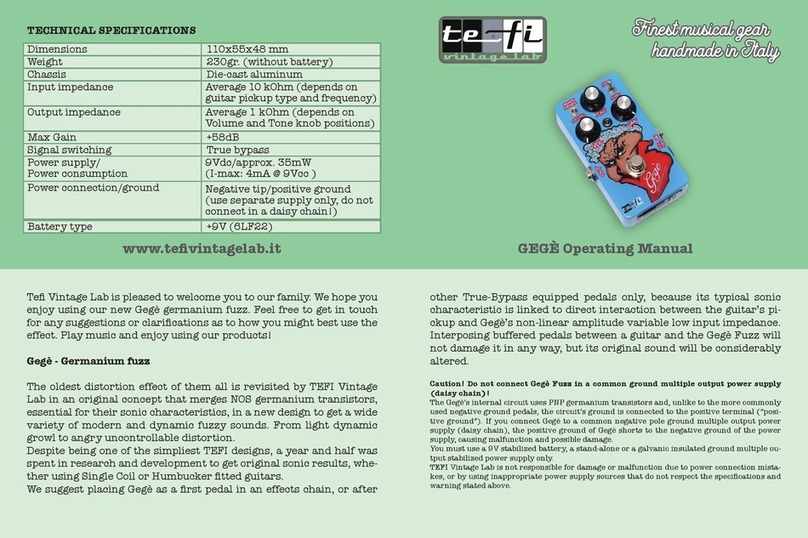
Traction Dot
3-Piece Screw
Traction Plate
Velcro Strips
Allen Screw
Allen wrench
Adjustment Knob
Wing Bolt
Traction Plate / Traction Dots
The Traction Plate adjusts to a variety of grip/slide
configurations. To change the position of the Traction Dots,
use the Multi-Function Drum Key or Allen wrench (3mm) to
remove the 3-Piece Screw beneath the footboard and
remove the Traction Plate (Fig.18). Rearrange the Traction
Dots to your preference and replace the Traction Plate.
Velcro Strips for Slip Prevention
Velcro Strips are provided with P-3002C Double Pedals to
help prevent slipping when used on carpeted floors. To
apply, peel off the backing on the Velcro Strips and apply
them in the locations shown. Clean the surfaces thoroughly
with alcohol and dry completely for best adhesion (Fig.19).
Hoop Clamp System
The P-3002C Hoop Clamp System is designed with
Spherical Rubber Grips allowing the front of the bass drum
to be raised while keeping the pedal flush on the floor.
Insert the bass drum hoop into the Clamp, and turn the
Wing Bolt to secure.
The Clamp comes preset from the factory to accommodate
most bass drum hoops but if necessary it can be adjusted
to fit thicker or thinner hoops. Loosen the Allen Screw on the
Adjustment Knob with the provided Allen wrench (2.5mm)
as shown and tighten or loosen the Adjustment Knob until
proper fit is achieved then re-tighten the Allen Screw
(Fig.17). If the heel plate of the pedal lifts while playing, try
loosening the Adjustment Knob to change the angle of the
Hoop Clamp until the pedal remains flat.
Fig. 18
Fig. 19
Fig. 17
Tip
Setting Examples
The Aluminum Traction Dots can be replaced with optional
NP-283N/7 Rubber Dots for more traction.
Upper Nut
Spring
Lower Nut
Click Lock
Spring Tension Adjustment
The P-3002C Demon Chain Double Pedal features our
patented Click Lock spring tension retention system. To
increase the spring tension, disable the Click Lock by lifting
the lever upward, loosen the Upper Nut and tighten the
Lower Nut until the desired tension is achieved (Fig.16-A).
To decrease spring tension, disable the Click Lock by lifting
the lever upward, loosen the Upper Nut and loosen the
Lower Nut until the desired tension is achieved. When the
desired spring tension is achieved, tighten the Upper Nut to
keep the spring tension from loosening then press the Click
Lock lever down to engage the grooves around the Lower
Nut until you feel the lever "Click" (Fig.16-B). Before playing,
make sure that both Upper and Lower Nuts are tight and the
Click Lock lever is in a vertical position with both sides of
the lever engaged in the grooves around the Lower Nut.
Fig. 16-BFig. 16-A

